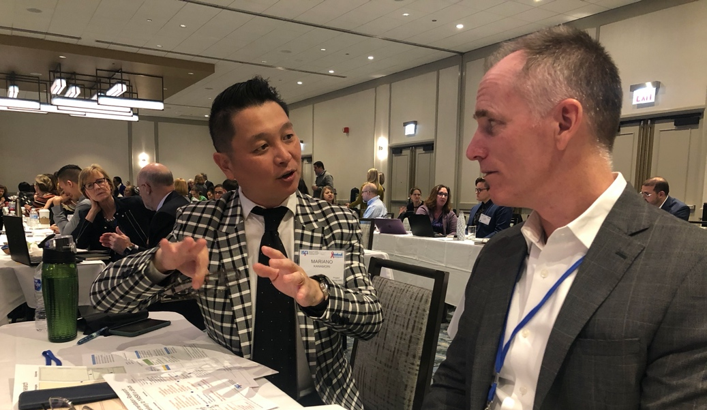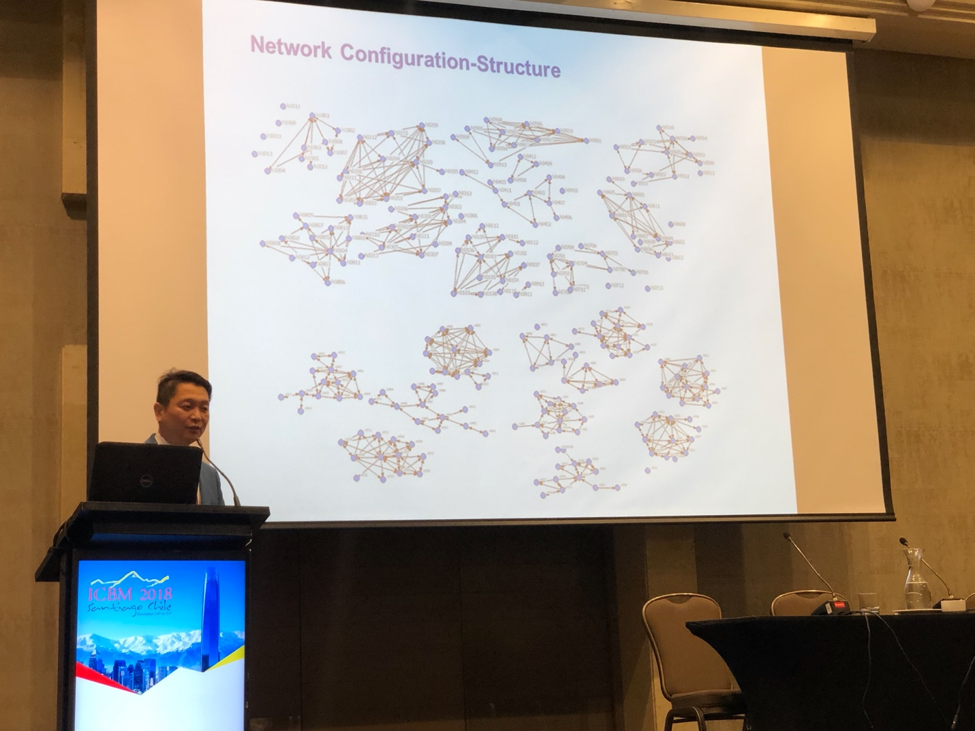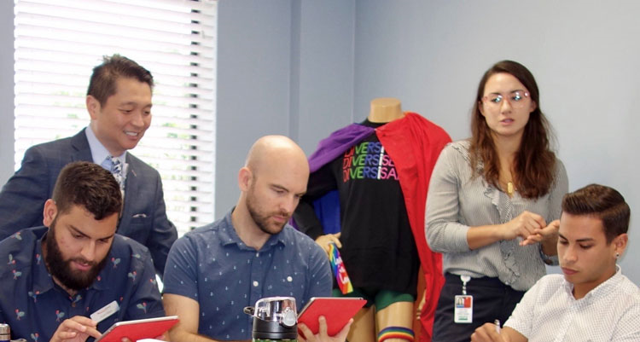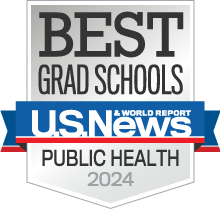R00: Multilevel approaches for embracing dyadic, egocentric and two-mode networks which address substance use disorders and HIV risk in Latino seasonal workers
This social network study incorporates dyadic, egocentric, two-mode network and multilevel mediation analyses to answer the following research questions: “How do Latino cultural values and acculturation stress impact social network configurations and dynamics?” and “How do the resulting social networks operate as protective or risk factors for substance use disorders (SUDs) and HIV?” This cross-sectional study will collect data from Latino male seasonal workers from March 2019 - December 2019 and use data from Latina seasonal workers collected from March and December 2015. The total sample will consist of 32 egocentric networks [(20 groups of women and 12 groups of men who have sex with men (MSM)]. Egocentric networks will also comprise of an additional 12 groups of 13 men for a total of 572 participants. The study will analyze associations between substance use disorders and HIV risk and: (1) Latino cultural values, (2) acculturation stress and (3) social network factors. For this study, Latino cultural values include family cohesion, marianismo, machismo and religiosity. Social network factors will include (a) Individual Factors: socio-demographic characteristics; (b) Social Factors: dyadic attachments, social support and family characteristics, direct influences from close friends or cliques (set of individuals all connected to each other), influences of network positions, and influence from self-selected friendships based on drug/alcohol use or HIV risk status; and (c) Structural Factors: affiliation network structures (social venues or types of seasonal work).
Ending the HIV Epidemic: FINISHING HIV
FlorIda South Hispanic Network Fighting HIV (FINISHING HIV) is an innovative and tailored program that uses a Pharmacy Network and a Parks Network to increase awareness and utilization of HIV protection, diagnosis and treatment services by three distinct Latino men who have sex with men subgroups in Miami-Dade County: straight, gay, and bisexual. In the Pharmacy Network, we will conduct formative work to be able to implement pharmacy-based diagnosis (HIV testing), prevention (PrEP and condom distribution) and treatment (ART referral) services.
Having HIV testing, prevention and treatment information and services available in pharmacies will be a particularly attractive implementation method to reach bisexual and closeted Latino MSM who do not approach traditional health services or HIV community programs because of the stigma associated with HIV in Latino communities. In the Parks Network, we will compile recommendations for appropriate, acceptable and feasible HIV-prevention activities in MDC parks and other community areas. This will be done in partnership with Latinos Salud, a South Florida-based Latino MSM HIV-agency that we have been working with for the past 5 years. Our team includes Latinos, MSM, and researchers working with Latino MSM, all committed to “End the HIV Epidemic.”

Center for Latino Research Opportunities: PROGRESO-II
From 2014 to 2017, Dr. Kanamori designed, pre-tested, successfully implemented and evaluated–under the mentorship of Dr. Mario De La Rosa–a social network HIV prevention program for Latina Seasonal Farm Workers (LSFWs) who use alcohol and/or illicit drugs: Progreso en Salud (PROGRESO). This earlier HIV prevention program was a two-group randomized clinical trial implemented in South Florida which adapted the VOCES/VOICES intervention and a standard health promotion intervention to incorporate social network approaches. Progreso II will build on Dr. Kanamori’s post-doctoral work with Latina seasonal farmworkers funded by NIMHD (P20, PI: De La Rosa) and NIDA (K99/R00, PI: Kanamori).
Progreso-II is funded by the University of Miami Center for Latino Research Opportunities for the development and pre-testing of pre-exposure prophylaxis (PrEP) materials designed for LSFWs. This study will aim to integrate the proposed PrEP component into PROGRESO’s proven effective social network intervention model. The goals of this exploratory CLaRO study are: 1) develop and pre-test scientifically supported and culturally tailored PrEP materials for a social network HIV prevention intervention aimed at increasing LSFW’s progress along the five positions of the Parsons et al (2017) PrEP cascade (Pre-Contemplation, Contemplation, Preparation, Action & Initiation, and Maintenance); and 2) assess the acceptability and usability of these PrEP materials by LSFWs’ who use alcohol and/or illicit drugs. To accomplish our goals, we will be working with a community organization supporting LSFWs, Florida Health Department officers working on Latino HIV prevention, researchers with expertise in HIV translational programs and social networks, and clinicians with PrEP expertise.

Emory University Center for AIDS Research: PrEParados
PrEParados explores how pre-exposure prophylaxis (PrEP) programs can harness the potential of social networks and venue-based affiliations to facilitate Latino men who have sex with men (LMSM) progress in the PrEP cascade. As such, PrEParados studies two social networks (friendship and sexual) of Latino men who have sex with men (LMSM) living in Miami-Dade County, Florida. The Friendship Network consists of 12 socio-centric networks (groups of LMSM), each comprised of 13 males, 20-39 years old (N=156). The Sexual Network consists of 156 egocentric networks. This project aims to identify the individual, social and structural factors of LMSM friendship networks as associated with their PrEP cascade position, and associations between LMSM sexual networks characteristics (e.g., homophily, sexual network size, use of alcohol/drugs during sex) and the probability of PrEP discussion and PrEP use disclosure. Data collection has completed and we are currently analyzing results.

University of Miami Institute of the Americas: The Impact of Social Network Structures on MentalDisorders and Sexual Transmitted Infections Among Venezuelan Immigrants Living in Peru
This collaborative study between the Social Network and Health Disparities Lab and the CDC-Peru studies the personal networks of Venezuelans who migrate to Lima, Peru. In 2018, Peru reported hosting over a half million Venezuelan refugees. One of every five Venezuelans who have left their country is now living in Peru. Over 156,000 of these immigrants have applied for refugee status, making Perut he primary host country for Venezuelan asylum-seekers. Venezuelan refugees and migrants arriving in Peru are in dire need of advice and support. Research is needed but lacking with regard to their social networks’ risk and protective roles for developing mental disorders and acquiring a sexual transmitted infection. As such, the aim of this project is to understand how the migration to Peru can shape Venezuelans’ social network characteristics, composition (before and after migration) and available support. Further, we will identify and explore associations between mental and substance use disorders and sexually transmitted infections.







